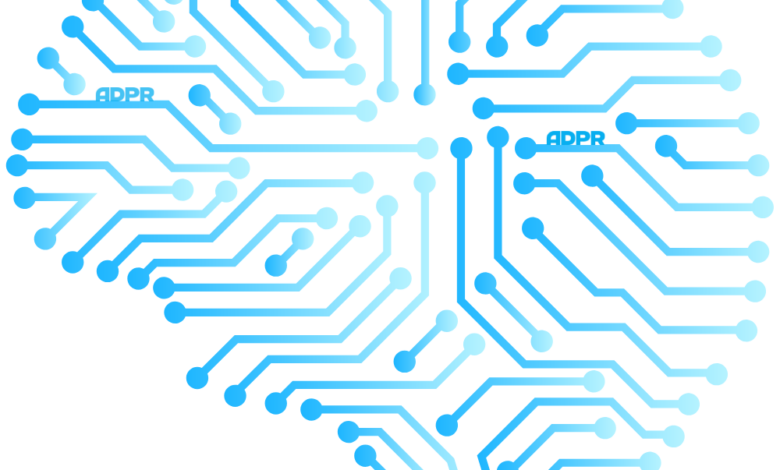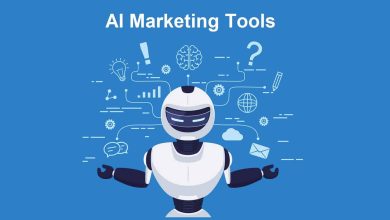
Artificial Intelligence (AI) is no longer a futuristic concept—it’s a reality that is reshaping industries, including Public Relations (PR) and marketing. Whether you’re an early adopter or prefer a human-first approach, AI is transforming how businesses operate. While AI presents exciting opportunities for improving efficiency, customer engagement, and strategic planning, it also brings challenges and risks that businesses must navigate carefully.
Opportunities of AI in PR and Marketing
Efficiencies in task management – For many PR and marketing professionals like myself, AI has the potential to streamline time-intensive tasks such as social media management, automated reporting and email marketing. This streamlining of processes could create more time to be spent on creative strategies, client engagement and high-level planning, which would have the outcome of deepening engagement and the success of campaigns.
Improved analysis capability – In the PR world, AI could be used to analyse public sentiment, media coverage and emerging trends, supporting real-time strategy development by offering real-time insights. Meanwhile, in marketing, AI-driven tools can be utilised to predict consumer behaviour by testing campaigns with synthetic audiences ahead of launch, or to optimise advertising campaigns and can even shape dynamic pricing models when applied in e-commerce environments.
Early warning signs for crisis management – When deployed within social listening tools, AI could be used to detect and highlight early signs of negative sentiment or potential crises on social media and online platforms, allowing communications teams to respond swiftly and efficiently. The ability to take a proactive approach can be the difference between offering early intervention to protect a brand’s reputation and managing a PR disaster once it has already escalated and grown awareness within media circles.
Challenges of AI in PR and Marketing
Accuracy issues – While AI can process vast amounts of data at a rapid pace, the accuracy of insights depends on the quality of the data it processes. Professionals need to ensure that the data collected and submitted to AI for analysis is reliable, diverse and representative. If AI is fed biased, incomplete, or incorrect data, the resulting analysis can mislead decision-making, leading to flawed campaigns and ineffective strategies.
Lacking creativity – AI can struggle to offer the creativity and intuition that human intelligence brings to PR and marketing. At ADPR we have found the human touch is still needed to create compelling narratives, build genuine connections with audiences, and handle sensitive situations like engaging with members of the press. Often the impact of AI trying to assimilate human creativity has the outcome of identifying its lack of humanity and understanding, which if used commercially can have a negative impact on engagement rates and brand perception.
Hallucinations – AI has an amazing ability to create images and content quickly, sometimes its creations show obvious signs of machine intervention, with complex images being constructed with incoherent composition a human wouldn’t construct, and written content containing “hallucinations” as AI strives to please its master by improvising to fill in unknown gaps in data. Releasing content straight from AI into the commercial world can erode brand trust, and in the worst case could result in legal cases where AI hallucinations are publicised as facts.
Poor ethics – The position of privacy, data collection and transparency often comes under question when discussing AI, with most free platforms openly disclosing that they do not offer confidentiality of data unless the user has paid for a subscription. Consumers are increasingly aware of how their data is used, and businesses should be cautious to ensure the use of AI is maintained within the parameters of regulations like GDPR. Failure to protect data within AI can result in reputational damage and loss of trust with customers.
Risks of AI in PR and Marketing
Losing the human touch – Over-reliance on AI automation can lead to impersonal interactions with customers and stakeholders. Within crisis situations and press interactions, AI can backfire, as it lacks the empathy and nuance required in sensitive situations.
Employment risks – AI has the ability to process routine tasks at an increased rate, which means certain roles may become obsolete. The ability of AI to effectively support routine tasks does create opportunities for PR and marketing professionals to upskill and focus on more strategic, creative and interesting tasks.
Biased data eroding reputation – AI has the ability to unintentionally perpetuate bias if it is trained on biased data. This can be particularly damaging in PR and marketing, where impartiality, inclusivity and fairness in messaging are crucial. If left unchecked, biased AI can be harmful to a brand’s reputation and can leave target audiences feeling alienated.
Lack of confidentiality – Data security is an ongoing issue in the world of AI, with many search platforms operating in open networks posing significant risks when processing sensitive data such as customer or corporate information. The open nature of these systems could lack the necessary controls to ensure data privacy and confidentiality. This increases the potential for unauthorised access or misuse of information. To mitigate these risks, businesses must carefully assess where and how AI processes sensitive data, to ensure compliance with data protection laws.
Finding the Right Balance
Explore the training opportunities – Like many organisations, ADPR has started to investigate how adopting AI can increase our operational efficiencies—to understand how to gain the best from the various platforms available to us we have engaged with specialist training, which we would highly recommend to other organisations in our field ahead of diving into the world of AI.
Analysis should be supported – Our team is built of experienced PR and marketing professionals, who collectively found AI to be supportive when engaging with tasks like analysing large data sets to help identify key trends, which might not be obvious in a manual analysis process, which has created time-saving opportunities. Our team also found that AI struggles to observe where our intervention and personal relationships have impacted the achievements and learnings within our campaigns.
Creativity and tone – We have experimented with the outputs of GPTs, tasking them to creative activities such as mind-mapping campaign concepts, and content writing, so far the results have identified a lack of humanity and understanding of brand history in the storytelling style of GPTs. The language patterns of AI can often be void of the linguistic nuances and creativity found in understanding how humans interpret intricate tones in language and how we detect humour.
What we want from AI – Looking to the future, we want to see AI develop in areas that will improve our ability to provide efficient reporting, capture accurate views of press coverage and offer accurate analysis, creating valuable time for our team to dedicate to creative tasks which are usually the activities which bring us the deepest sense of enjoyment in our day to day roles and frequently deliver the best value offering for our clients.
A final thought
In summary, while we can see a growing benefit of AI in PR and marketing, currently the technology doesn’t offer the benefits in the areas we want it to, leaving many processes still better off under the watchful eye of human contact. In the long term, it is obvious that the integration of AI into PR and marketing will create several opportunities which will support professionals to personalise customer experiences, increase efficiency, and develop more robust data-driven strategies. In the short term, the challenges in areas such as data quality, ethical considerations and the complexity of AI implementation must be addressed, until then, it might be poignant to treat AI as a collaborating partner to be used with careful human supervision and quality control processes.
For more information on how ADPR support client campaigns contact us here: www.adpr.co.uk/connect/





